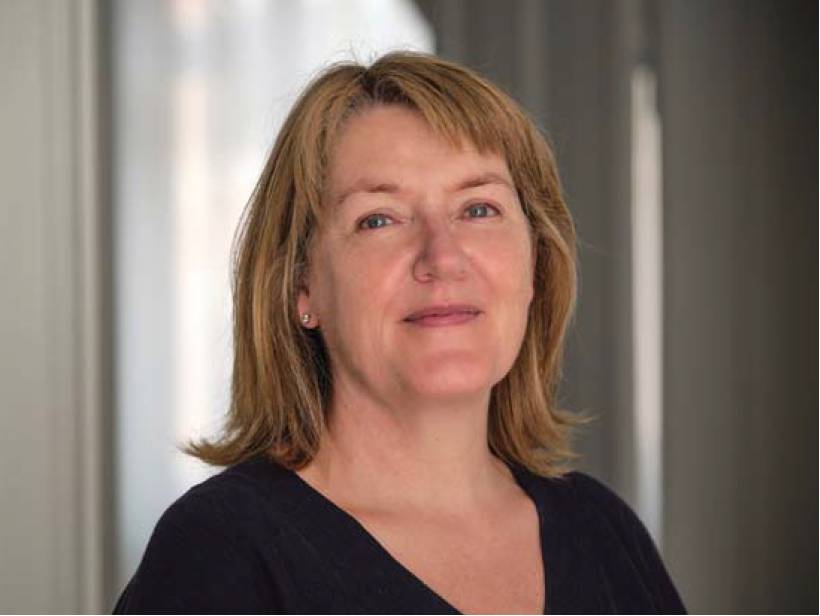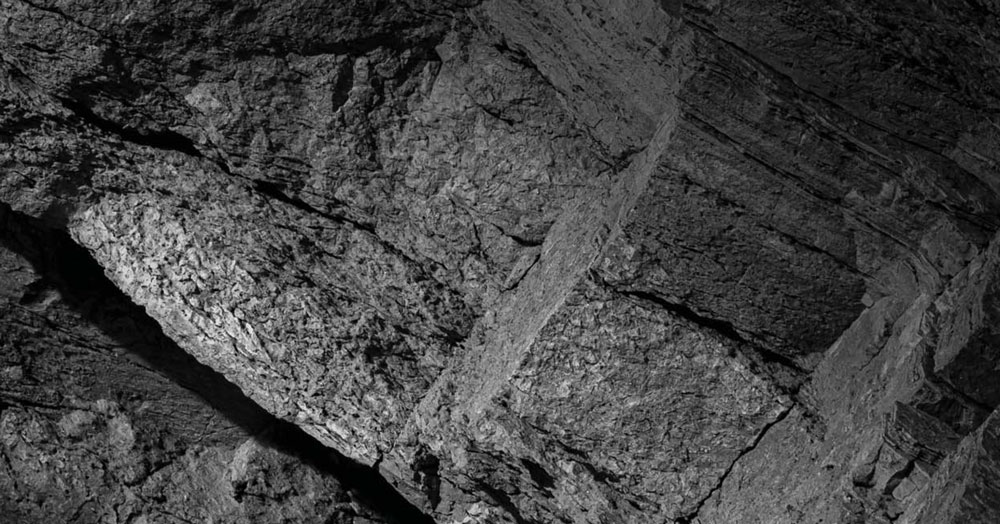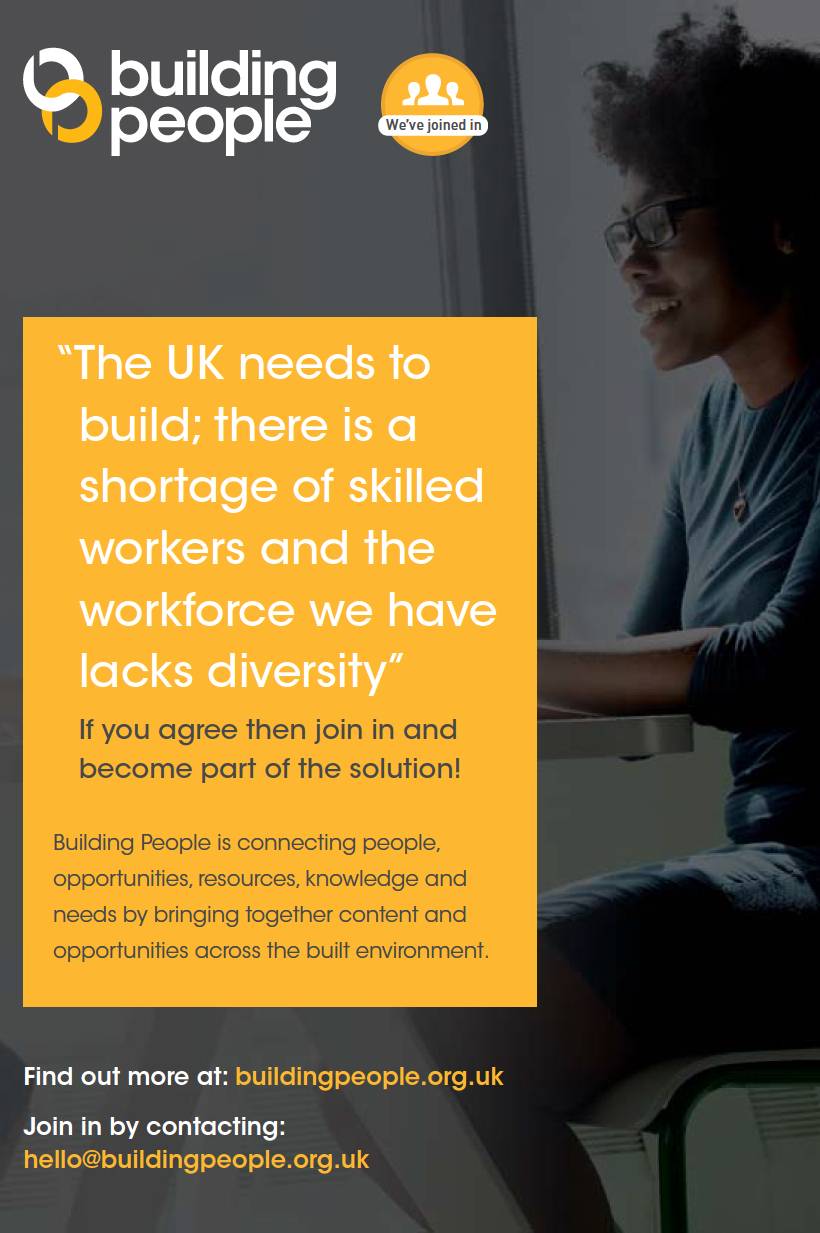It starts with a rock
Dr Karen Hanghøj, Director, British Geological Survey, talks to Abigail Tomkins

AFTER an hour with Karen Hanghøj, usefulness emerges as the overarching theme that has guided her life as a geologist. From a student in Copenhagen, through to stints in Greenland, the US, Germany and now as director of British Geological Survey (BGS), being of real use has guided her every move.
The fear of not being useful ended her research post at Columbia University in New York, and after spells teaching, consulting and leading an innovation hub, she arrived at BGS in autumn 2019, soon after it became one of the ‘Geo6’ public bodies under the remit of the Geospatial Commission.
When asked what the proudest moment of her career is, Karen Hanghøj says it is being here, at BGS, where “the really cool thing is that they have a triangle of science, society and outreach – it’s essential work, you’re useful.” But what role does geoscience play and what are its uses with the challenges the surveying and engineering worlds are facing?
Karen Hanghøj talks to Civil Engineering Surveyor...
Why geology?
Everything starts with a rock! Everything we put into anything is dug out of the ground somewhere. I was never a rock collector as a child, but I was interested in science, travelling and the outdoors, so I gave geology a go.
How did you get from geology student to head of BGS?
During my studies, I spent time in the field working in mineral exploration in Greenland. When you’re in a remote place like that, you share access to helicopters and you end up meeting a lot of people, and those meetings can lead to opportunities.
One of those opportunities took me to the US, where I worked as a researcher at Columbia University. After a couple of years, I had the realisation that if I didn’t come into work the next day, no one would notice. As important as science research is, it wouldn’t necessarily make a big difference to anyone whether I was there or not. That for me was a huge eye–opener – and is something that I think affects many academics at some point.
I moved to the mineral industry as a consultant, while continuing with part-time outreach with the American Museum of Natural History. I thought I was going to be in the US forever, but then a job came up at the Geological Survey of Denmark and Greenland, heading up the minerals and Greenland area. After a period leading a European innovation community on raw materials in Berlin, I came back to survey again with BGS, where we provide data and solutions so that we can live in a better world.
How useful is it to have those different experiences of research, commercial and government work?
It is how I like to work. I’m always building on what I did last and taking that network and that understanding with me. As national surveys, we need to speak to people who aren’t like us about what we know and what we can contribute. Yes, we need researchers who are experts, but we also need someone who can tell people outside of our world why we need that.
How does research within a national survey differ to academia?
I became aware that university careers are driven around individuals competing for funding and jobs. Here, we spend most of our funding on public good research, and prioritise legacy corporate knowledge – even if it’s a little nitty-gritty at times!
Our direction is largely from government, what they need from us and what they need to be delivered in society by industry. Industry is often the implementer of change. If we want to achieve net zero, we can help find solutions that industry may buy into if they get the right support from government and the right regulations. There is a synergy that I find hugely motivating.
Mining, oil and gas, radioactive waste... how do you manage the politics?
We are impartial — that is maybe the most important thing about geological surveys. It is our role to give governments the best possible knowledge for them to make decisions.
It is hard sometimes not to have an opinion. I’m very passionate about metals and minerals for example, and some may describe that as pro-mining because we have a public perception of things as ‘for or against’. But it isn’t that simple. We need resources – energy, minerals, water – and we need to be as sustainable as possible about how we use those resources. Our knowledge and data helps with that and it’s important we explain to the general public why that is.

One of the reasons we need mining is because energy transition is using metals that we aren’t already using – they are not there for us to recycle, they have to come from the ground (again, it starts with a rock). We call wind energy sustainable because there’s lots of wind. But what about the neodymium and steel that the turbines are made from? That understanding isn’t there yet with the public. We’re moving towards a circular economy but it needs to go hand in hand with mining. You need to put things into the loop.
If we take a smartphone, you’ve got 60 different elements of the periodic table in it that probably come from 20 different mines from more than 10 different countries. If we recycle your smartphone, is it worthwhile extracting the small amount of gold in there or would that perhaps demand more resources than getting gold out of a rock? And what about the resources that go into finding that rock in the first place? When looking at exploration, one out of perhaps a thousand places we investigate will actually be mineable. Also, metallurgy – the ‘unmixing’ of that rock into something that gives you a pure metal – is very resource-demanding. It’s complex. Yet we have really smart people out there talking about how we become sustainable who are not even looking at that portion of the value chain.
The supply of energy is complex. The energy transition is just that, it’s a transition. The UK is going to be depending on oil and gas for a long time. Our responsibility is to ensure that happens in as sustainable way as possible, and that we have the knowledge to make renewable energy technologies possible.
We’re very involved in providing science knowledge for radioactive waste management and storage (that starts with a rock as well!) but it doesn’t mean we are for or against nuclear power. It means that the UK government is facing one of the century’s largest environmental challenges and needs knowledge about the subsurface to be able to solve it. We can’t pretend that the problem doesn’t exist.
What’s the role of geoscience in facing the challenges of climate change?
As with new energy technologies and radioactive waste storage, most people think these are engineering problems – and there are definitely engineering problems within them – but it starts with the rock, it starts with the subsurface. You’re not going to be storing CO2 or hydrogen in the subsurface until you understand what it looks like. You’re not going to extract heat unless you know where is a good place to do that.
We have geoscientists who study paleoclimates – what the climate looked like a few 100,000 years back. We can’t start making climate models going forward unless we understand the past. Applied science and engineering will build on that. The role of geoscience in climate change isn’t fully understood. Geologists tend to be more interested in talking to other geologists. We’re not good at talking to local government, for example. But I hope we are improving.
Do we have the right skills to face these mega challenges?
We make sure we have the right skills. We don’t just sit and look at our seismograms, we are at the forefront of science and we change the ways we work based on the needs of society. We have the broadest geological skills in the country, because if the government shows up tomorrow with a problem, we need to be able to respond quickly.
We don’t just sit and look at our seismograms, we are at the forefront of science and we change the ways we work based on the needs of society.During the Foot and Mouth Disease outbreak in 2001, we were called on by government to support them on what the implications were for the environment, particularly the subsurface. Within hours, we had to make an assessment and recommend where we could deposit animal carcasses in the most suitable places. When society needs a response to something that involves the subsurface – whether it’s an urgent problem or a long-term problem – we have to be part of that solution.
The geology and surveying professions are looking to create more diverse workforces, how can we do this?
We both have a huge challenge with diversity. We all want to get better, we all want to do something, but we don’t always know exactly what to do, that is why it is so important to listen and talk with people from both inside and outside the geosciences.
I get frustrated when I see different university departments trying to recruit students from areas that are very close to them. It shouldn’t be geology against geography – that’s not going to make any difference at all. It comes down to us getting five-year-olds outside and into nature, so that they become interested in natural sciences. Some of them will be interested in geology or surveying, cartography or biology, it doesn’t really matter.
Is schools engagement the key?
Yes. But we have to reach out to all schools and avoid it becoming systemic by only going to the schools who have parents working at BGS, or who are in our locality. Again, we are only part of the solution. It’s on our agenda and we’re resourcing it, but there’s a limit to how much we can do. This is a job for everyone.
How well-used is BGS? Do you deliver what is needed?
We can always do better, but the system works well – we have a lot of happy customers. In 2020 NERC [Natural Environment Research Council] had 322,000 downloads of BGS products from its website – that’s a thousand per day!
We’ll be starting stakeholder engagement this autumn asking if we are providing the right kinds of data and services before we start our new strategy from 2022. It would be great to get CICES members involved in that.
How important is what you do outside of the UK?
It is hard sometimes not to have an opinion. I’m very passionate about metals and minerals for example, and some may describe that as pro-mining... But it isn’t that simple.We have a good reputation, probably partly due to our legacy as the oldest geological survey in the world. As a colonial country, the UK has a lot of knowledge about the geology of India and several African countries, and we’re currently working in Malta to create new geological maps.
We’ve recently become experts in urban geology, a new field concerned with what’s below a city – all the infrastructure, waste management and water management. We’ve done work in Asia where new mega-cities have been extracting water to drink, and then finding themselves subsiding. There are all kinds of challenges building these enormous cities, but they have solutions. Rocks are rocks wherever they are.
How has the transition gone to being part of the Geo6 under the Geospatial Commission?
The Geospatial Commission is a strategically important asset for the UK. We’ve all needed that championing of geospatial data to government, but I think we’ve got a bit more work to do in realising the synergies amongst the Geo6. We want to think big thoughts together and see how we can support each other in delivering them. It’s a fantastic opportunity.
What sort of leader would you say you are?
I’m Danish and I’m a typical Scandinavian consensus leader. We don’t make decisions by voting, we talk about it until everyone is satisfied that even if this wouldn’t have been their favourite choice, they understand that it is the right one. It enables people to take ownership of decisions.
I’m very interested in transparency of processes and how we make decisions involving people. I try to be inclusive, I’d like to think that I am but I don’t know if I’m always successful. You can always improve.
What advice would you give to those who are early in their career?
Make sure that you have fun! Take time to reflect on what’s interesting about where you are and don’t overthink where you are going next.
What do you want your legacy here to be?
I want to leave behind a BGS that has flourished under my leadership. I will have made our relevance more acknowledged and more visible. Our contribution to solutions for more sustainable societies will be easily recognised by everyone.
It is also really important that this is a great place to work. You can never make everyone happy, but I would like to think that I will make a difference for the better for the people who work here.
Dr Karen Hanghøj, Director, British Geological Survey, was talking to Abigail Tomkins
www.bgs.ac.uk @BritGeoSurvey
